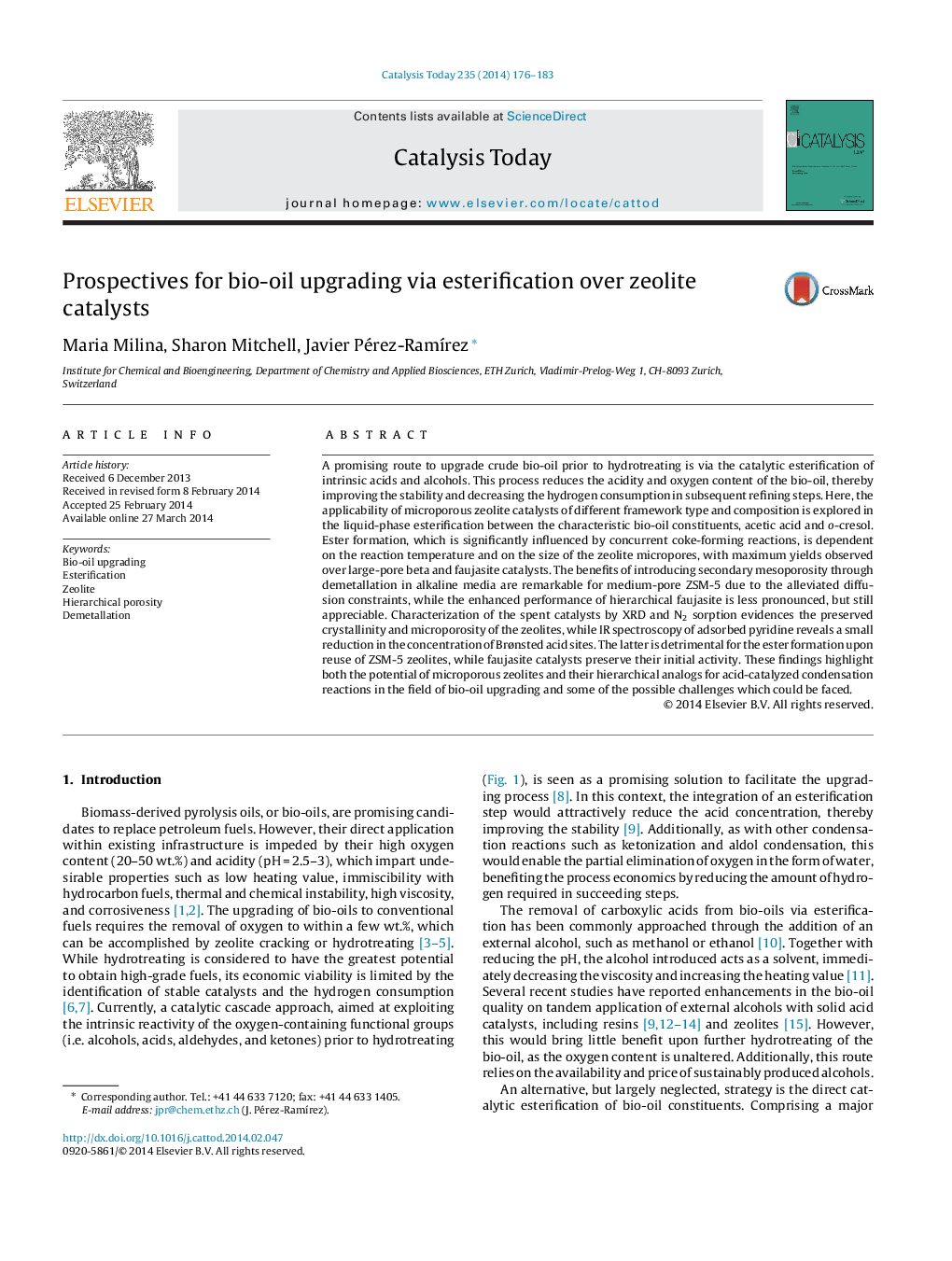| کد مقاله | کد نشریه | سال انتشار | مقاله انگلیسی | نسخه تمام متن |
|---|---|---|---|---|
| 54690 | 47020 | 2014 | 8 صفحه PDF | دانلود رایگان |

• Zeolites shown to be potential catalysts for the esterification of bio-oil constituents.
• Efficiency of carboxylic acid removal enhanced by the presence of intracrystalline mesopores.
• Benefits upon application of hierarchical zeolites related to extent of transport limitations.
• Property alteration due to the acidic hydrothermal conditions identified as challenge for viability.
A promising route to upgrade crude bio-oil prior to hydrotreating is via the catalytic esterification of intrinsic acids and alcohols. This process reduces the acidity and oxygen content of the bio-oil, thereby improving the stability and decreasing the hydrogen consumption in subsequent refining steps. Here, the applicability of microporous zeolite catalysts of different framework type and composition is explored in the liquid-phase esterification between the characteristic bio-oil constituents, acetic acid and o-cresol. Ester formation, which is significantly influenced by concurrent coke-forming reactions, is dependent on the reaction temperature and on the size of the zeolite micropores, with maximum yields observed over large-pore beta and faujasite catalysts. The benefits of introducing secondary mesoporosity through demetallation in alkaline media are remarkable for medium-pore ZSM-5 due to the alleviated diffusion constraints, while the enhanced performance of hierarchical faujasite is less pronounced, but still appreciable. Characterization of the spent catalysts by XRD and N2 sorption evidences the preserved crystallinity and microporosity of the zeolites, while IR spectroscopy of adsorbed pyridine reveals a small reduction in the concentration of Brønsted acid sites. The latter is detrimental for the ester formation upon reuse of ZSM-5 zeolites, while faujasite catalysts preserve their initial activity. These findings highlight both the potential of microporous zeolites and their hierarchical analogs for acid-catalyzed condensation reactions in the field of bio-oil upgrading and some of the possible challenges which could be faced.
Figure optionsDownload high-quality image (199 K)Download as PowerPoint slide
Journal: Catalysis Today - Volume 235, 15 October 2014, Pages 176–183